Yes, what you eat can help keep you healthy.
By Heather Mayer Irvine 
Vitamins and supplements are highly useful tools for a lot of folks looking for some immune system support through cold and flu season and beyond. But they are just that—tools. They are not a foolproof solution to stay healthy. The best way to achieve that goal, and support a strong immune system, is by packing your diet with whole, nutrient-dense foods.
Eating a varied diet that includes foods rich in immune-boosting nutrients—think vitamins A, D, E, C, selenium, zinc, and antioxidants—combined with proper sleep and exercise can help keep illness at bay. Certain fats, particularly omega-3 fatty acids, have also been associated with immune health benefits, according to a review published in the high impact factor International Journal of Molecular Science. So, the next time you load up your grocery cart (virtual or in-person), be sure to reach for these foods.
Eggs
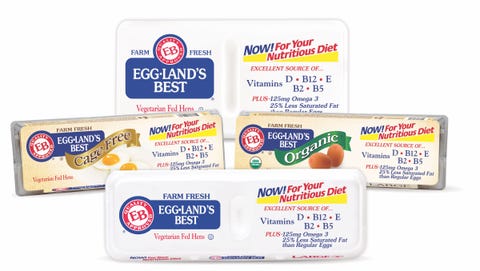
Eggland’s Best eggs are available in classic, cage-free and organic varieties at your local grocery store Learn More
Eggs may be one of the most nutrient-dense foods out there, meaning they pack a whole lot of good stuff into just a few calories. But not all eggs are created equal.
Compared to ordinary eggs, Eggland’s Best eggs are richer in a variety of micronutrients that can help support a healthy immune system, including six times more vitamin D, 10 times more vitamin E, and more than double the vitamin B12 and omega-3s. This is key, since many micronutrients are not produced in the body alone and must be derived from the diet, according to Clinical Director of Chef Clinic and co-founder of ChefMD® Dr. John La Puma.
“Vitamin B12 and vitamin D are essential in making the white blood cells that make antibodies. And vitamin D controls the inflammatory cascade (the chemical response to heal affected tissues),” Dr. La Puma says. “So having enough vitamin D and B12 are two excellent ways to make sure that you build your immunity to fight off disease.”
Dr. La Puma adds that vitamin D also plays a crucial role in maintaining immune function and fighting infection. That’s backed up by a thorough mechanistic review published in the Journal of Investigative Medicine. A recent review in Neurology and Therapy summarized data showing that low levels of vitamin D may contribute to the risk of developing the autoimmune disease multiple sclerosis, and may worsen disease activity in MS patients.
Bell Peppers
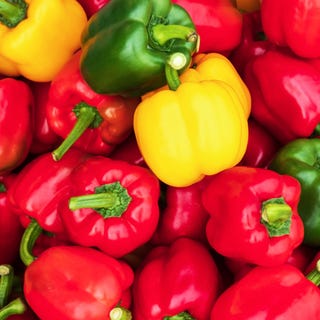
Sutthipong KongtrakoolGetty Images
There’s a reason bell peppers come in a variety of bright hues: color is a signal that the peppers are rich in disease-fighting antioxidants. Not only do bell peppers contain powerful antioxidants like beta-carotene, they’re also an incredible source of vitamin C…even better than oranges.
Just one cup of chopped bell pepper contains three times the recommended daily intake for vitamin C.
Garlic
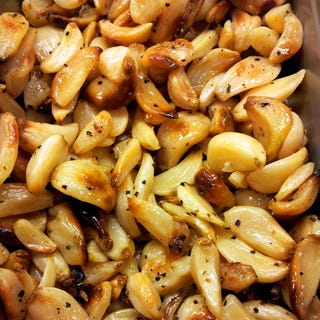
Frank Schiefelbein / EyeEmGetty Images
Garlic contains allicin, an antioxidant, that can help fortify your immune system, according to research published in Food Science and Biotechnology. You don’t have to eat a ton or have it raw, either, for the antioxidant to be effective.
May we suggest adding roasted garlic to your egg scramble or within a frittata?
Sunflower Seeds
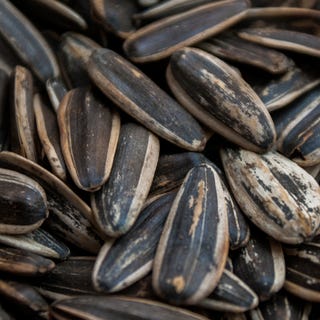
Unggul WicaksonoGetty Images
Whether you like em ‘shelled or prefer to break them open yourself, sunflower seeds are an easy way to strengthen your immune system, thanks to their versatility (Salad topper! Trail mix! Oatmeal mix-in!) Like most seeds, they are high in unsaturated fats, which can fight inflammation, and vitamin E—a heavy-hitter when it comes to repairing damaged cells.
According to the National Institutes of Health, scientists are studying whether vitamin E, one of the more powerful antioxidants, can ward off chronic diseases that result from free radical damage to cells.
Kefir
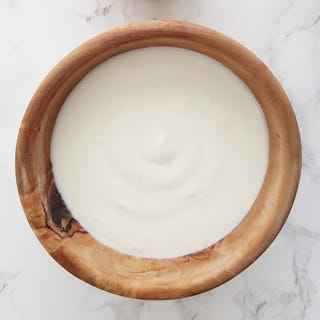
Myriam VisramGetty Images
Think of kefir as yogurt’s tangier cousin, packed with those famous probiotics you’ve most likely heard about. Probiotics are types of good bacteria and fungi that live in the GI tract, which plays a huge role in immune health. That’s because much of the immune system lives in the GI tract, according to Johns Hopkins Medicine.
Consuming foods that are rich in probiotics, including kefir, helps support a healthy GI tract, which, in turn, promotes a robust immune system.
If kefir is too tangy for you, other fermented foods that are packed with probiotics include certain yogurts (look for “live and active cultures” on the label), kombucha, sauerkraut, kimchi and naturally fermented pickles.
For delicious and nutritious recipes featuring many of these superfoods that can help support a healthy immune system, visit egglandsbest.com.

